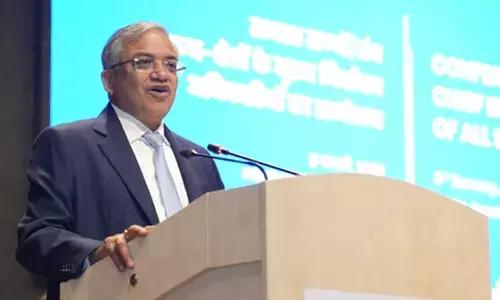Malayalam film industry worried by sexual harassment allegations: Resignations and new era of accountability

The Malayalam film industry, already no stranger to controversy, has been thrust into the spotlight once again due to alarming revelations surrounding sexual harassment and abuse.
The Malayalam film industry, already no stranger to controversy, has been thrust into the spotlight once again due to alarming revelations surrounding sexual harassment and abuse. These issues, which have plagued the industry for years, have resurfaced with renewed intensity following the release of the Justice Hema Committee report. This report, which meticulously documents the widespread prevalence of sexual misconduct within the industry, has sent shockwaves through Kerala and beyond, prompting serious consequences for several prominent figures.
The Justice Hema Committee, established to investigate the treatment of women in the Malayalam film industry, has uncovered a deeply ingrained culture of exploitation and harassment. The report has brought to light the disturbing reality faced by many women in the industry, revealing that several influential individuals have abused their power to harass and exploit female colleagues. The findings of this report have sparked a wave of outrage and have given rise to new accusations as more women come forward with their own harrowing experiences.
In the aftermath of the report’s release, the Association of Malayalam Movie Artists (AMMA) has been particularly affected. The scandal has led to the resignation of several key figures within the organization, including actor Siddique, who had previously held the position of general secretary. His resignation came shortly after actress Revathi Sampath publicly accused him of rape, a charge that has further fueled the firestorm surrounding the industry.
Additionally, director Ranjith Balakrishnan, who has also been implicated in the report, stepped down from his role at the Kerala Film Board following accusations of indecent behavior by Bengali actress Srilekha Mitra. These resignations are significant, marking a rare instance where prominent figures within the industry have been held accountable for their actions. The swift departures of Siddique and Ranjith signal a potential turning point in the way such allegations are handled within the Malayalam film industry.
The revelations and subsequent resignations have reignited discussions about the need for systemic reform to protect women in the film industry. For years, actresses in Mollywood have been advocating for safer working conditions, especially following the high-profile case involving actor Dileep, who was accused of orchestrating the abduction and abuse of a well-known actress. This case galvanized many women in the industry to unite in solidarity, demanding justice and the implementation of measures to prevent such incidents from happening again.
The activism against sexual harassment in Kerala coincided with the global Me Too movement, which saw women across various industries come forward with their experiences of abuse and exploitation. The Me Too movement, with its emphasis on naming and shaming perpetrators, brought international attention to the issue and provided a platform for victims to speak out. Although the movement faced challenges, including instances of false accusations, it nevertheless played a crucial role in highlighting the pervasive nature of sexual harassment.
However, despite the progress made in raising awareness and holding some perpetrators accountable, many victims in the Malayalam film industry have struggled to obtain legal recourse. The informal mechanisms of the Me Too movement, such as public naming and shaming, have often been the only means through which victims could seek some form of justice, even if it was only in the court of public opinion.
The release of the Justice Hema Committee report and the subsequent resignations of Siddique and Ranjith mark a pivotal moment for the Malayalam film industry. The fact that these powerful figures have stepped down from their positions suggests that the allegations against them are being taken seriously and that there may be a shift towards greater accountability in the industry.
As more actresses come forward with their stories, the pressure is mounting on the Malayalam film industry to implement comprehensive reforms that address the systemic issues highlighted in the report. The industry’s response to these latest revelations will be closely watched, not only by those within the film community but also by the broader public, who are increasingly demanding transparency and justice.
In conclusion, the Malayalam film industry is at a crossroads. The shocking revelations of the Justice Hema Committee report and the subsequent resignations of key figures represent both a crisis and an opportunity for the industry. By confronting these issues head-on and committing to meaningful change, the industry has the chance to emerge stronger and more inclusive, setting a precedent for other film industries across the country.
















